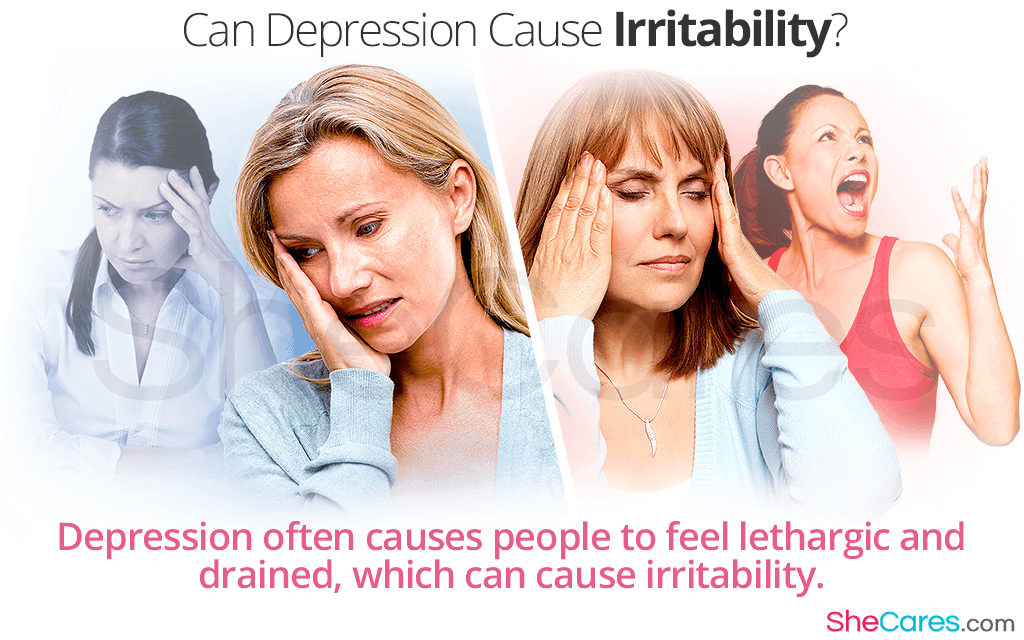It is widely acknowledged that depression will affect about 25% of people at some point during their lifetime. Research has revealed that in 2015 an estimated 16.1 million Americans over the age of 18 suffered from depression - with the larger proportion of these being female. Unfortunately, this difficult condition can cause other symptoms relating to temperament, such as irritability.
Depression and Irritability: The Link
Depression is defined as a mood disorder that causes a constant feeling of sadness. There is a range of reasons why people may suffer from depression; this, and the way that the symptoms reveal themselves, has led to different recognized forms:
- Persistent depressive disorder
- Seasonal affective disorder
- Perinatal depression
- Psychotic depression
- Bipolar disorder
These each have reasonably similar symptoms, one of which is irritability. Irritability is often one of the early indicators of depression. It can sometimes be hard to recognize as a symptom due to the fact that day-to-day life can often cause irritation in itself.
Other Depression Symptoms Can Cause Irritability
Depression can become evident through a number of other symptoms. Becoming frustrated with the side effects can often lead to further feelings of irritability, particularly if you are struggling to cope with them. Some of these symptoms include:
- Loss of interest in friends. Many people who suffer from depression find that they no longer want to spend time with their friends or do activities that they once enjoyed. This can cause a breakdown of relationships, especially with those who may not fully comprehend the complexities of the condition. Frustration with this can cause irritability.
- Sleeping problems. Those who are depressed sometimes find that they struggle to sleep, or they cannot adhere to a regular sleeping pattern. This may lead to feeling irritable particularly due to the frustration caused by being awake when trying to fall asleep.
- Losing or gaining weight. This physical aspect of depression can cause irritability, especially because it can often bring unwanted attention from others.
- Tiredness. Depression often causes people to feel lethargic and drained, which can cause irritation because they do not have the energy to deal with daily irritants.
Depression and Irritability during Different Stages of a Woman's Life
The female reproductive system goes through many changes over a woman's lifetime, which can impact her emotions and physical condition. The fact that you can expect such ups and downs can sometimes be enough to cause depression and irritability, but furnished with knowledge about the causes, you can feel confident about facing irritability in all the different stages of womanhood.
- Premenstrual syndrome (PMS). This is a condition caused by hormonal imbalance before the menstrual cycle. It can lead to psychological symptoms such as anxiety, depression, and irritability. Each of these emotions can have a ripple effect, actually leading to each other in a vicious cycle.
- Breastfeeding. Postpartum depression is unfortunately considerably common, and it can cause irritability, which is likely to be heightened by the lack of sleep and stress of new responsibilities that inevitably come with motherhood.
- Perimenopause. Symptoms associated with the menopause transition can cause emotional problems, such as irritability. It is quite common for mature women to discover that they are feeling overly impatient with their circumstances, or indeed with their loved ones, which can be intensified if they are experiencing depression.
Research has confirmed that depression and irritability are correlated. If you feel excessively irritable during any stage of your life, it is important to acknowledge that this could be a sign of underlying depression and hormonal imbalance. It may be necessary to talk to your doctor in order to find a suitable way to treat the condition.
